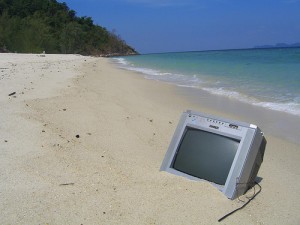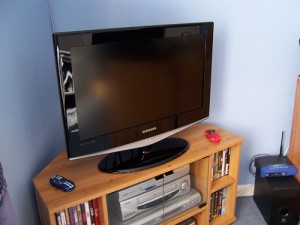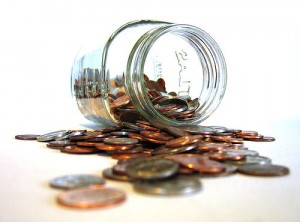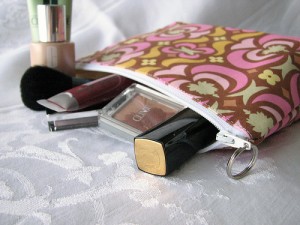Last week, my $2.50 flip flops that I’ve been wearing all summer bit the dust and one of Tony’s two pairs of shoes started to fall apart. I realized over the weekend that I haven’t bought a new pair of shoes in almost two years (aside from the running shoes I bought in January), and it’s been a year since we last bought Tony sneakers with birthday money from his parents.
I looked objectively at what Tony and I were wearing on our feet. We looked like a couple of college kids with some tattered shoes. I suggested to Tony that we should go shopping for some shoes, and he looked at me like I’d grown another head.
“Should we really be spending money on something like that right now?”
When I outlined the facts for him, we both realized how ridiculous it was not to buy new shoes.
- We each have only three pairs of shoes — Sneakers, dress shoes, and gym shoes.
- It’s been over a year since either of us bought shoes.
- Our sneakers are falling apart.
- We are not broke.
It’s kind of silly that we had to remind ourselves that buying one pair of new shoes each year isn’t unreasonable. We may not make a lot of money, but we make too much to walk around in shoes that are falling apart.
We spend so much time trying to convince ourselves that we’re broke because it makes it easier to resist overspending, but every once in a while we have to put things into perspective.
Don’t deprive yourself of basic necessities in the name of frugality. Walking around in tattered shoes or clothes to save money isn’t frugal — it’s cheap, and you deserve better than that. Frugality is about conserving, making the most of each dollar you spend, and shopping for the best deals. It’s not about depriving yourself.
We spent Saturday shopping for new shoes, and we ended up picking up two pairs of Converse sneakers on sale at Shoe Carnival for buy one, get one 50% off. Not only did we get a great deal on comfortable shoes, but we reminded ourselves that we are not as broke as we let ourselves believe.



